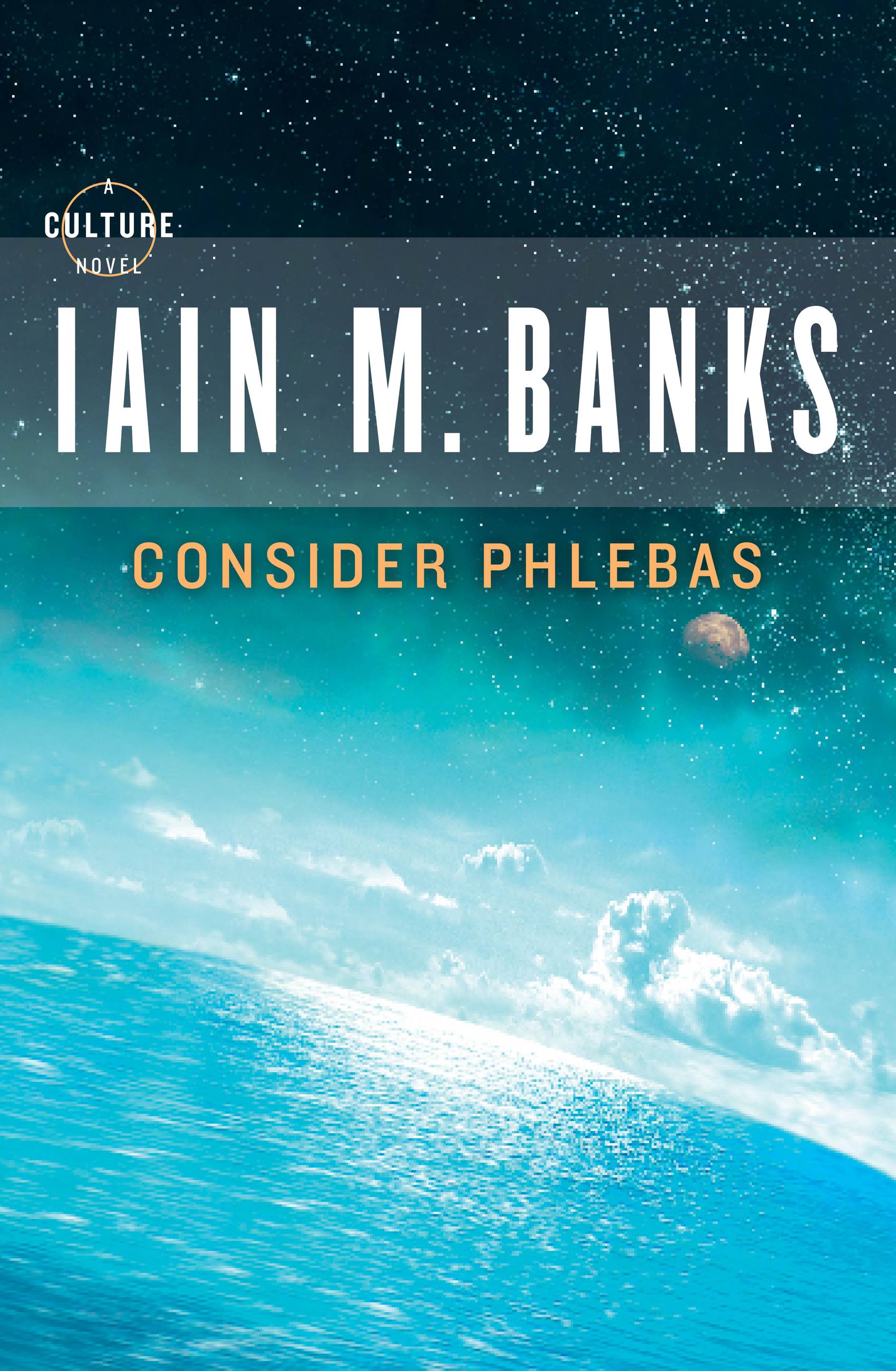Orlion reviewed Consider Phlebas (Culture, #1) by Iain M. Banks
Review of 'Consider Phlebas' on 'Goodreads'
5 stars
With a title like "Consider Phlebas", the better read of us will probably expect what many are calling "a literary, thinking-man's space opera."
Weeelllll...yes, but...
And, those that have the experience of a space opera (i.e. anyone that has watched Star Wars/Star Trek/Really, any sci-fi show set in space) will probably expect a fast-clip, laser-firing romp across the galaxy.
Yes, but...weeelllll...
At its heart, Consider Phlebas is genre fiction. There's a massive galactic war going on between the Culture and the Idirans because each does not like the cut of the others' spacesuits and both are starting to get a little too big for each other's tastes. Admist this war, in a miracle of science, a precious Culture Mind has stranded itself on a Planet of the Dead... monument to the futility of warring civilizations owned by the godlike Dra'Azon. Our hero, Horza, is an agent under the employ of the Idirans. He is a Changer and has been to this world before so he presumably will be allowed there again, and is therefore the perfect candidate for the retrieval of the Mind by the Idirans. All this care must be taken so as not to provoke the Dra'Azon , who may be able to wipe both civilizations from the galaxy.
That is your introduction. This is very much a science fiction genre book. If you do not like science fiction or if the description just given confuses you, this book is not a place to start reading science fiction.
Now, for the flipside: the soul of book is T. S. Eliot's The Wasteland, particularly the section "Death by Water" (which is where the title of Banks's book comes from). The book is bombarded with references to drownings, sermons of fire, sayings of thunder, ritual of burials, and of course that game of chess I was referencing earlier. The galactic war itself is actually modeled heavily on World War I, which coupled with the Phlebian imagery makes for an exercise in the ultimate futility of struggle.
That means if you love science fiction but hate those so-called classics that draw attention away from your beloved novels and prevent them from getting the critical attention they deserve, guess what? Many aspects of the plot will seem pointless, gratuitous, and probably boring.
And that is where Consider Phlebas has decided to make its stand: among the group of readers familiar enough with genre science fiction that they will not be overwhelmed by its various conventions and actually appreciative of some of the finer points of literature.
I have not decided if this is 'groundbreaking' or not. I am pleased at this return to a more old-school science fiction with absurd technologies like Dyson spheres, and it is nice to see it unconstrained by the limitations of pulp magazines. Overall, I enjoyed the adventure and the various uses of imagery from the Wasteland and will eventually return to the Culture Universe.

